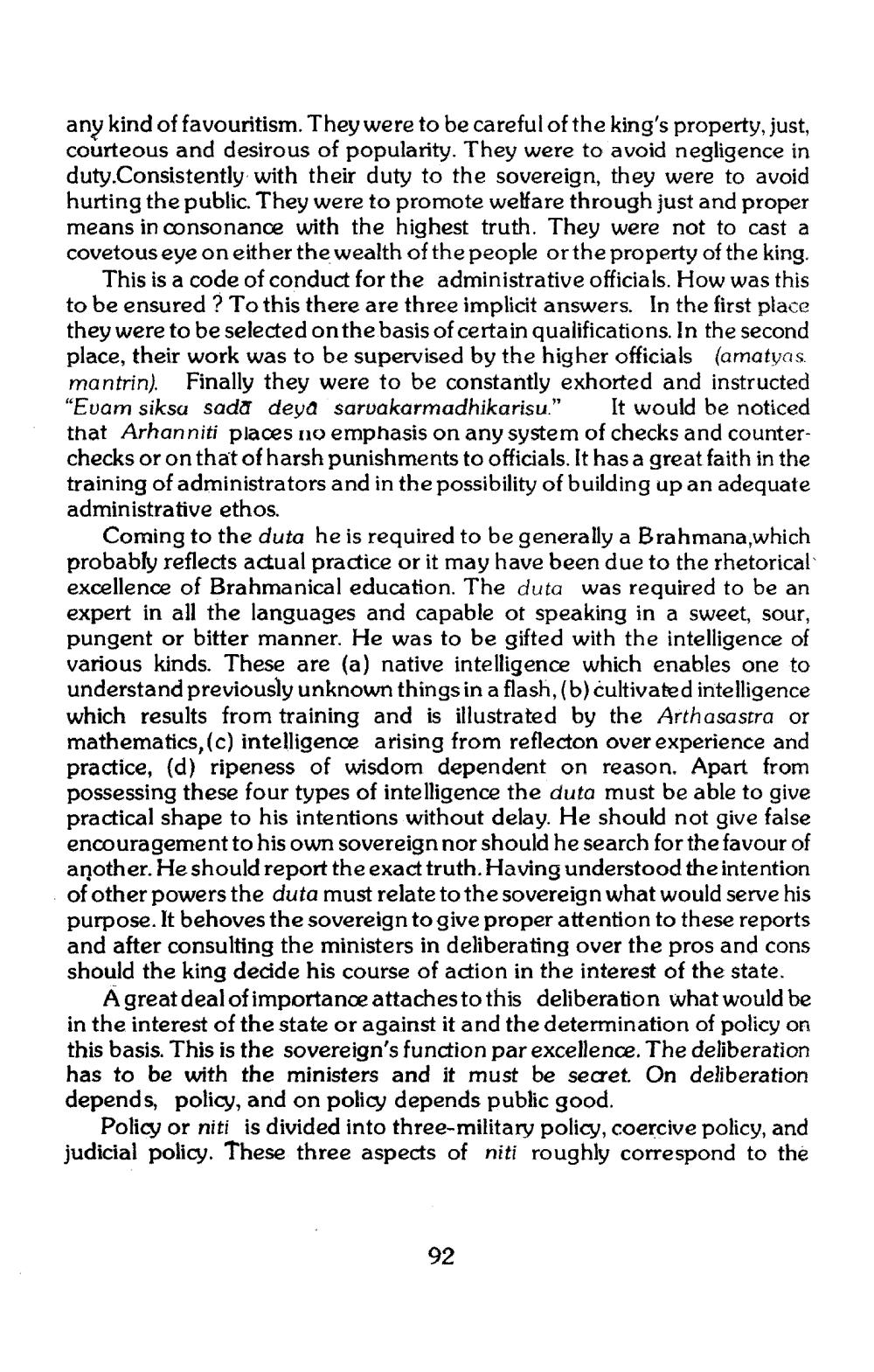________________
any kind of favouritism. They were to be careful of the king's property, just, courteous and desirous of popularity. They were to avoid negligence in duty.Consistently with their duty to the sovereign, they were to avoid hurting the public. They were to promote welfare through just and proper means in consonance with the highest truth. They were not to cast a covetous eye on either the wealth of the people or the property of the king.
This is a code of conduct for the administrative officials. How was this to be ensured ? To this there are three implicit answers. In the first place they were to be selected on the basis of certain qualifications. In the second place, their work was to be supervised by the higher officials (amatyas. mantrin). Finally they were to be constantly exhorted and instructed "Evam siksa sada deya sarvakarmadhikarisu." It would be noticed that Arhan niti places no emphasis on any system of checks and counterchecks or on that of harsh punishments to officials. It has a great faith in the training of administrators and in the possibility of building up an adequate administrative ethos.
Coming to the duta he is required to be generally a Brahmana,which probably reflects actual practice or it may have been due to the rhetorical excellence of Brahmanical education. The duta was required to be an expert in all the languages and capable of speaking in a sweet, sour, pungent or bitter manner. He was to be gifted with the intelligence of various kinds. These are (a) native intelligence which enables one to understand previously unknown things in a flash, (b) cultivated intelligence which results from training and is illustrated by the Arthasastra or mathematics, (c) intelligence arising from reflecton over experience and practice, (d) ripeness of wisdom dependent on reason. Apart from possessing these four types of intelligence the duta must be able to give practical shape to his intentions without delay. He should not give false encouragement to his own sovereign nor should he search for the favour of another. He should report the exact truth. Having understood the intention of other powers the duta must relate to the sovereign what would serve his purpose. It behoves the sovereign to give proper attention to these reports and after consulting the ministers in deliberating over the pros and cons should the king decide his course of action in the interest of the state.
A great deal of importance attaches to this deliberation what would be in the interest of the state or against it and the determination of policy on this basis. This is the sovereign's function par excellence. The deliberation has to be with the ministers and it must be seaet. On deliberation depends, policy, and on policy depends public good.
Policy or niti is divided into three-military policy, coercive policy, and judicial policy. These three aspects of niti roughly correspond to the
92




